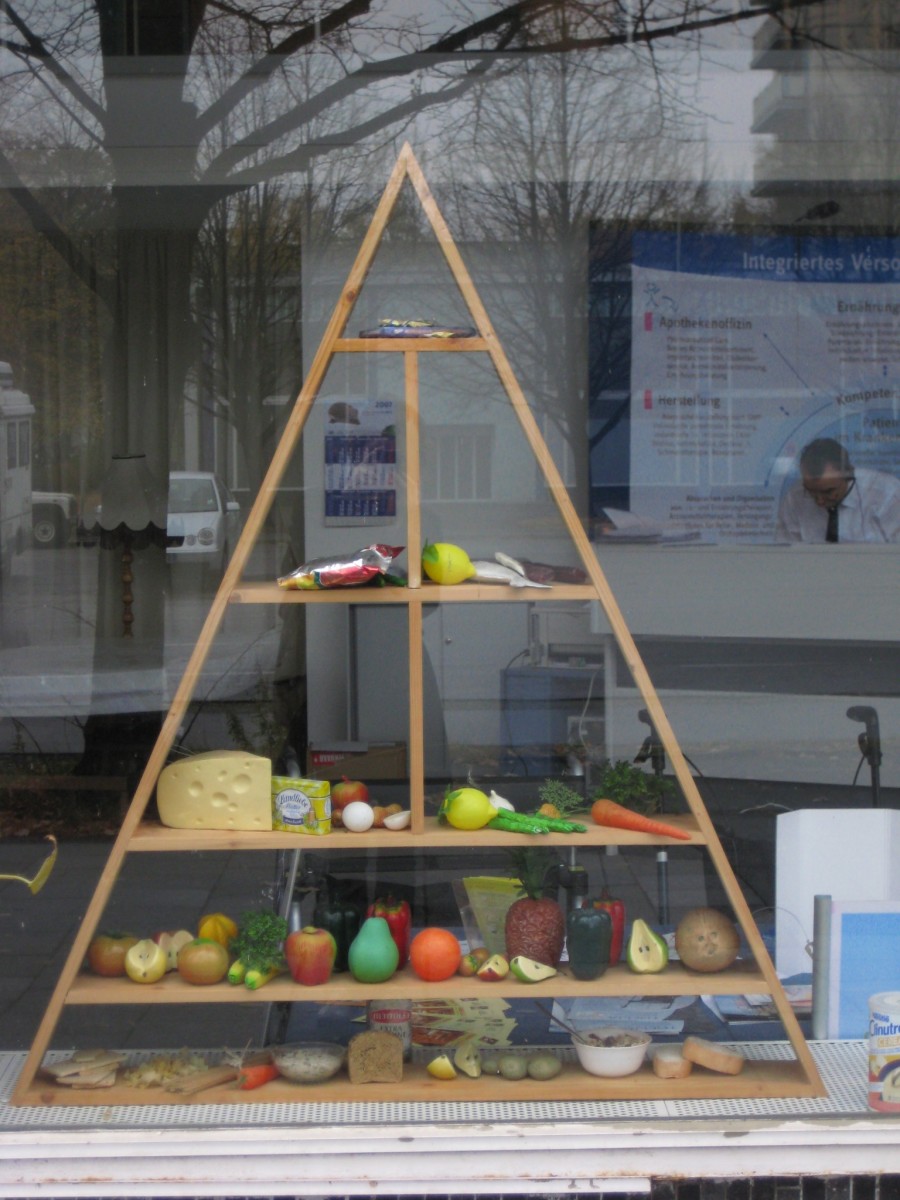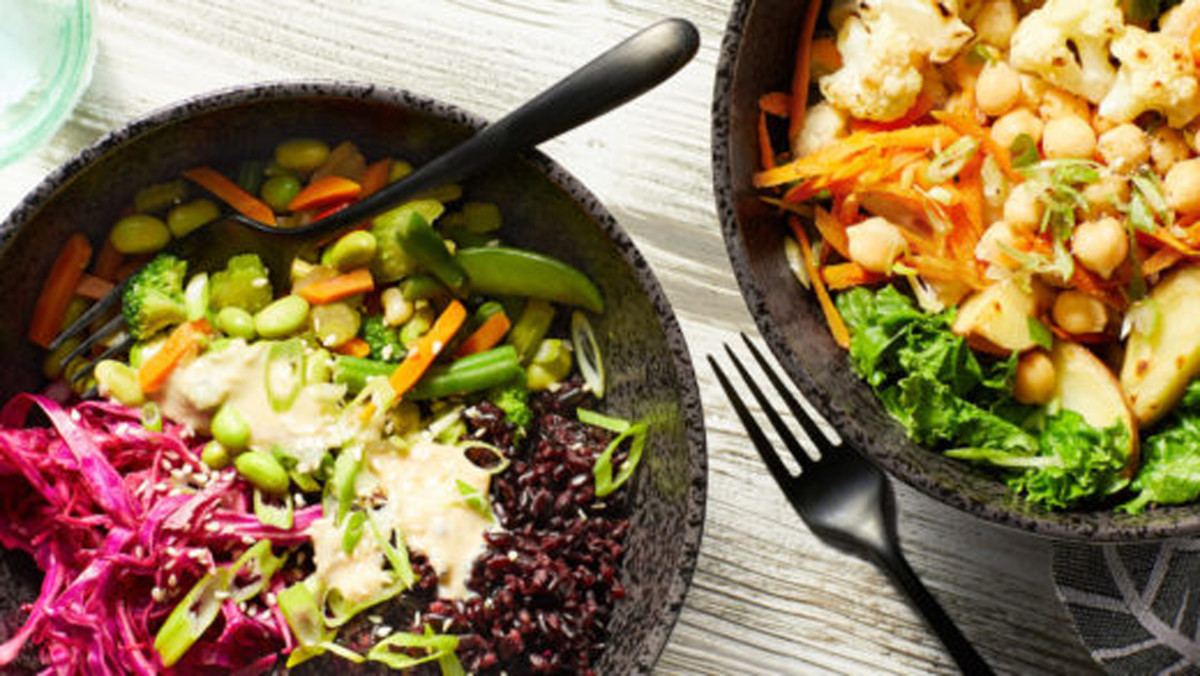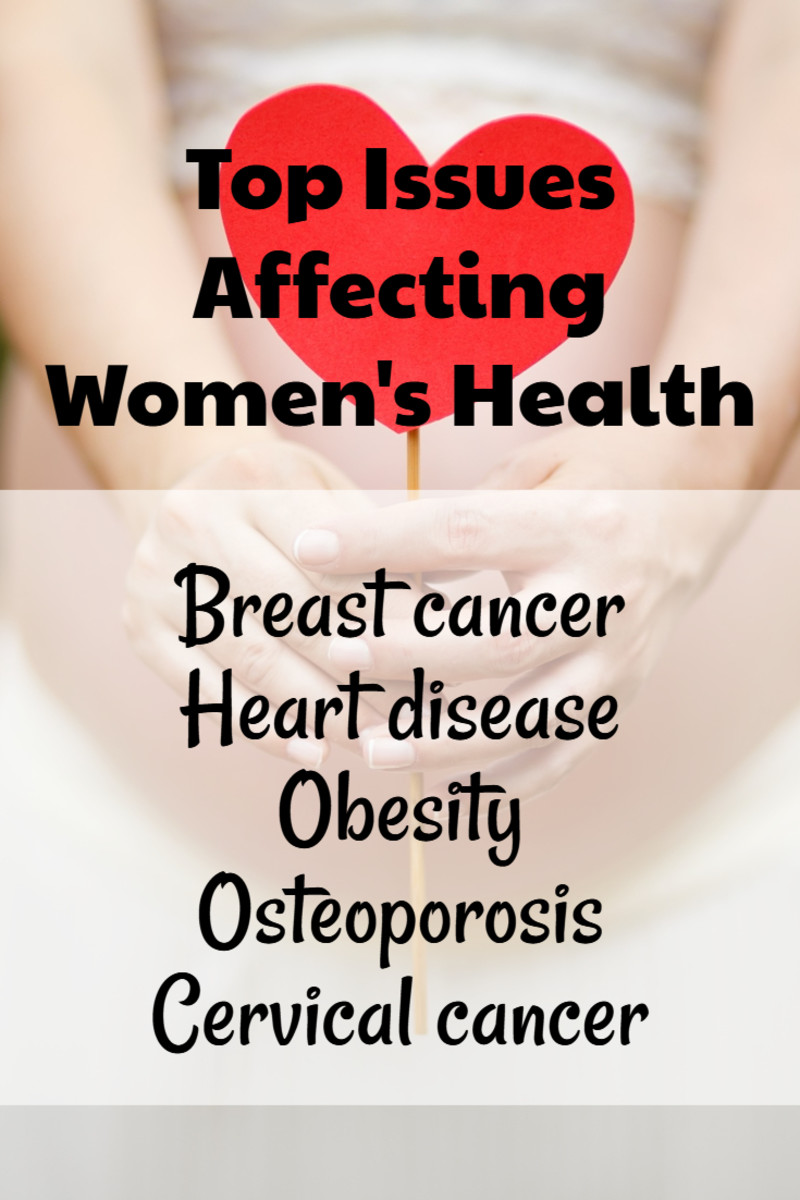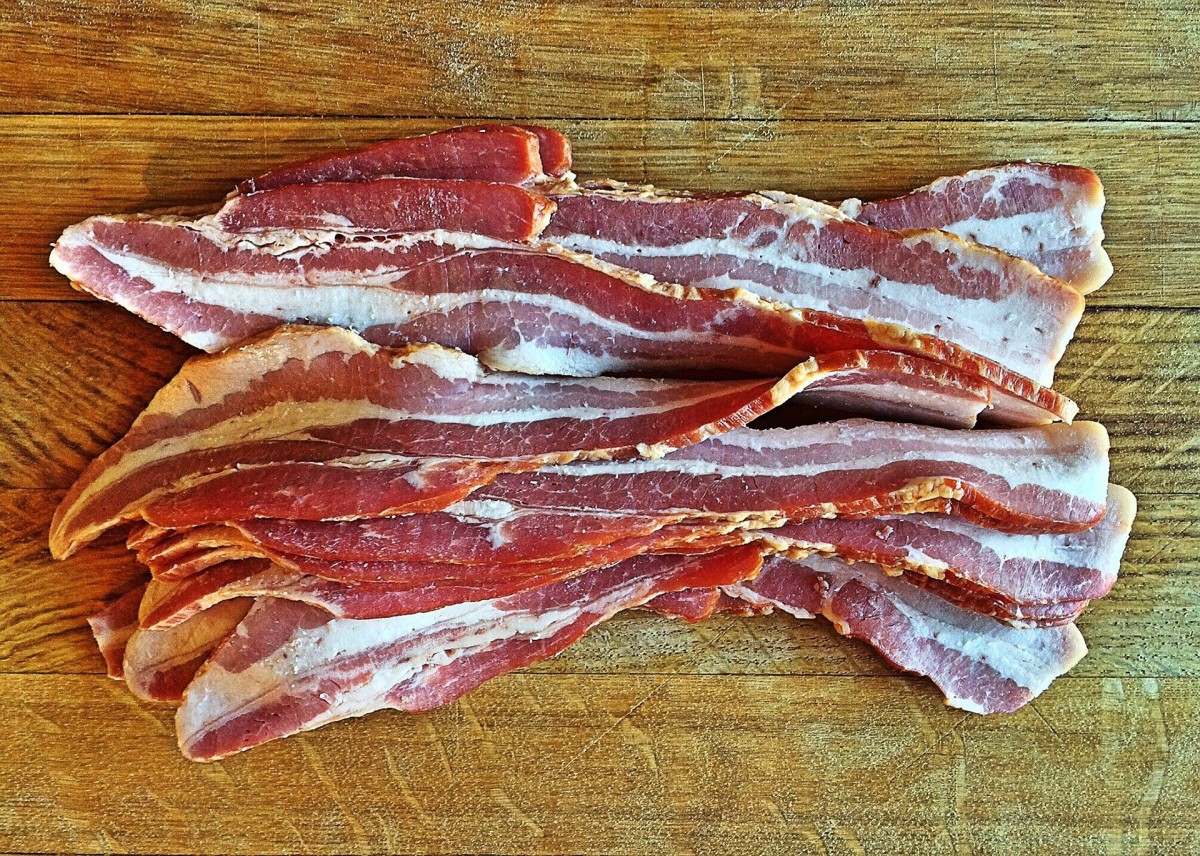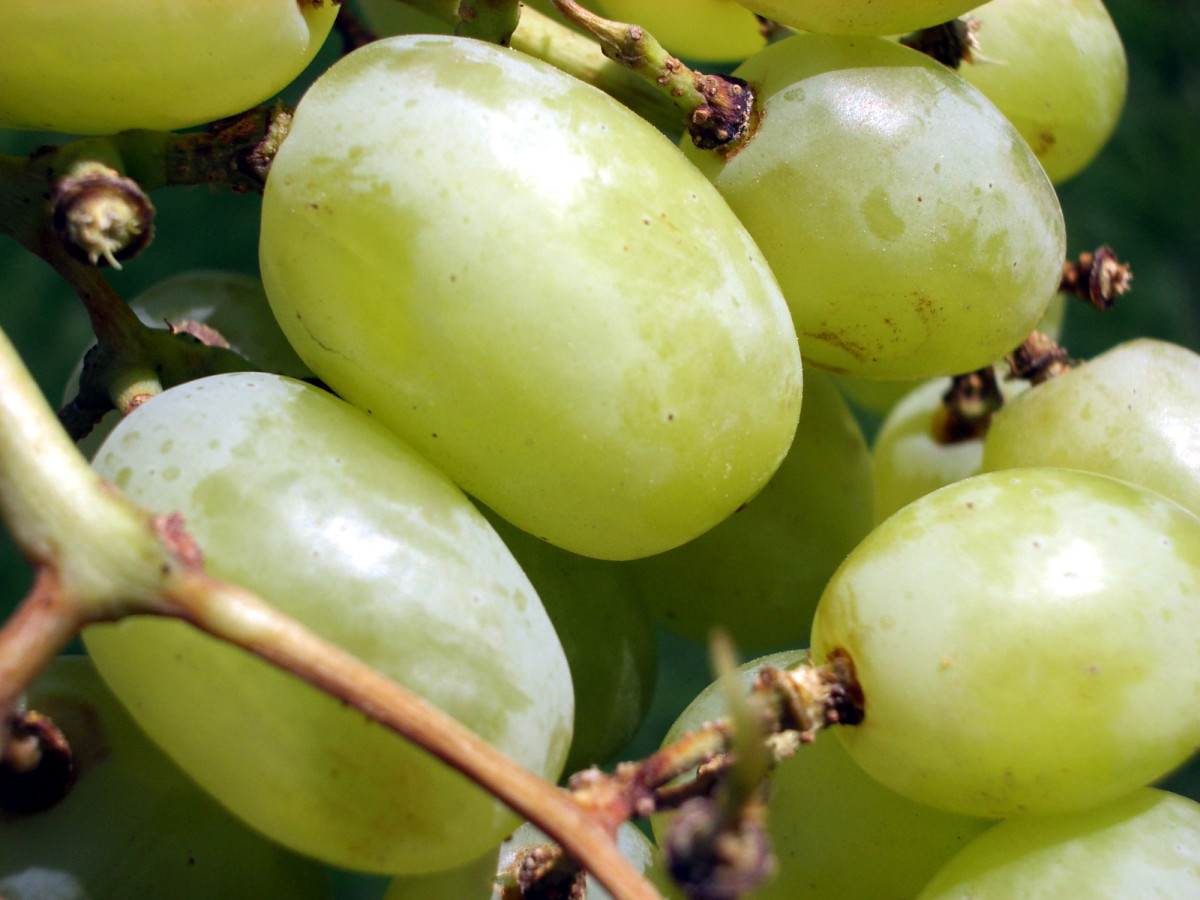Why should I eat less meat?
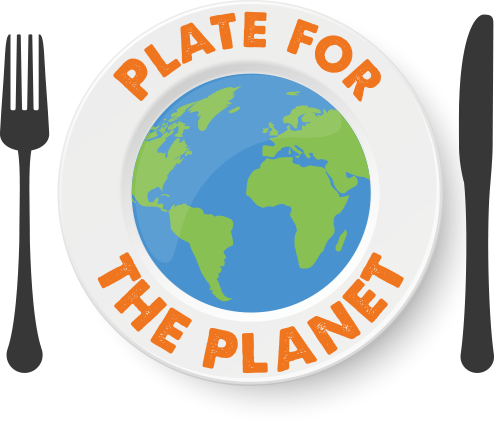
Eat less meat
Ok, I know what you're thinking..." here comes another article written by a crazy vegan/vegetarian animal lover that wants me to quit eating meat". Although I am, I'm not going to ramble on about my personal reasons for not wanting to eat things with a nervous system.
I am a passionate plant eater and I love animals, but I want to share with you some things on what even reducing meat consumption can do to improve your life, health, the lives of animals, and the world.
#1 Your Health.
If you look at the anatomy of the human body along with the design of nature, we are not designed to eat meat. We do not have sharp nails or claws that can tear through flesh, we cannot run 40 mph as a true carnivore can, and we have teeth that grind, not shred. Our digestive systems are not designed to process heavy loads of dead flesh. We eat meat because we can. Because over years of evolution and tradition, we took rank at the top of the food chain, so we eat it, no other reason. Just because we can, doesn't always mean we should. Sadly yes we have been brain-washed. "We need to eat meat" is simply a lie.
Have you ever noticed when you eat meat how heavy and sluggish you feel? It's because it takes about 4 hours for the meat to be broken down by your digestive system. It's a heavy thing to eat and process, it takes a lot of work for us to break this stuff down and expel it.
Humans are the only living thing that drinks milk from another species. You don't see a baby cow drinking milk from a monkey, why? Because this is not natures design. There is a protein found in animal products called casein, reducing the intake of this has shown to reduce or eliminate your odds of getting cancer. Almost like a switch, increased casein intake has found to "turn on" cancer DNA, reduction turns it off. Casein is mainly found in dairy products animal milk, cheese, dairy, heavy creams, and boxed products such as crackers. Read the labels. If it has dairy, it has casein. If you don't believe this statement, just google "casein and cancer", you'll be amazed at what you'll see. Animal milk wasn't made for human consumption.
Animal products are linked to heart disease. According to the CDC in the USA-
- About 610,000 people die of heart disease in the United States every year–that’s 1 in every 4 deaths. 1 in every 4!
This isn't really surprising when you look at the lifestyles of the average US citizen. We eat too much, we drink too much, smoke too much, about the only thing we don't do is move too much.
So why does animal protein link to heart disease? Because it is high in saturated fat and cholesterol. Plant-based proteins do not contain cholesterol. None. Not one bit. When we consume large amounts of animal meat, these substances build up in our arteries causing blockages, which lead to heart disease and strokes. It has been proven that a plant-based diet can stop or even reverse the heart-related damage. Plant-based diets are nutrient dense, high in fiber and low in saturated fat which all equals better health.
One study published in the American Journal of Epidemiology concluded that among the 29,000 participants, those who ate the most meat were also at the greatest risk for heart disease. The researchers also reported that a high intake of protein from plant sources such as tofu, nuts, and beans lowers the risk of heart disease by 30 percent.
If all American's converted to a plant-based diet, heart-related diseases could almost be completely eradicated. But you can still lower your risk for heart-related diseases and cancer by eating less meat! I don't know about you, but I love my heart, it does a lot of work and deserves to be treated well.
Plant-based food eaters are likely to have lower total and LDL cholesterol, lower blood pressure, and lower body mass index (BMI) which reduces the risk of many chronic diseases.
Reducing meat doesn't stop at heart disease, it also reduces obesity, cancers (especially colon cancer), eliminates type 2 diabetes, reduces inflammation, arthritis pain, the list goes on and on...
You'll live longer!

Detox!
- Body detoxing, symptoms, withdrawal and problems fro...
Detoxing the body is never really pleasant, here is what to expect from detoxing or cleansing and the symptoms your body produces when doing so...clear your sinuses, eliminate mucus and acne... - Detoxing, why to detox from dairy products, detox sy...
Over consumption of dairy products can cause a multitude of intolerable symptoms, impaired organ function, embarrassment, and discomfort. Do a detox from dairy and rid yourself from all of this!
Clean out your guts
When we consume meat, our stomachs produce two types of digestive juices to break it down. Carbohydrates such as fruits, vegetables, bread and grains use an alkaloid for digestion, but strong hydrochloric acid is needed to digest meat.
The first few weeks you stop eating animal protein based foods, your stomach stops producing hydrochloric acid because there is no use for it. You may be a bit windy the first few weeks as your digestion adjusts, but by 4 weeks, your stomach is going to get a lot flatter. And don't we all want that?
It's said on average, people are walking around with 5-10 lbs of rotten fecal matter crammed inside their guts. Unless you're doing colon cleanses, or coffee enemas on a regular basis, that stuff is just caked inside your intestinal walls. This gunk prevents you from absorbing nutrients as well as you are designed to. When you stop eating meat even for a month, your body has a chance to push out old rotting fecal matter that is clogging your intestinal tract, not to mention parasites and other toxins. Many people lose up to 10lbs when they detox from a heavy meat based diet.
If you suffer from acid reflux, you'll also feel better reducing meat intake, because you'll reduce the amount of acid your stomach is producing to digest food.
When you stop eating so much meat, you'll feel so much lighter. Not just physically, but spiritually as well!
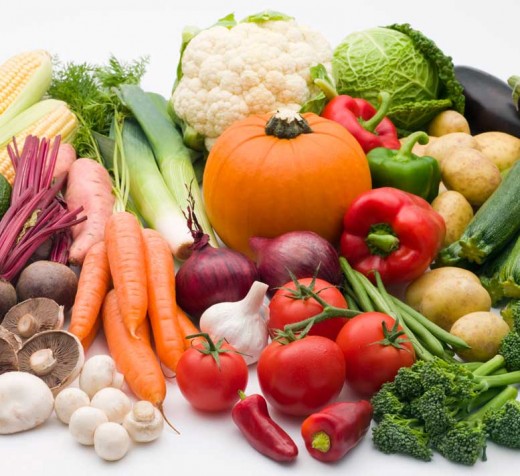
Vegetables!
- Vegetables and fruits, how many different kinds and ...
I bet you'd be shocked at the different types of fruits and vegetables we have to consume on our wonderful planet, read on to see if there are any you didn't know about or have perhaps...forgotten...
Learn how to eat more plant based meals
- Order Your FREE Vegan Starter Kit With Recipes And Tips From PETA
Request a copy of PETA's free vegan starter kit, which is packed full of recipes, tips on making the compassionate switch, and more.
#2 Meat is expensive
Why is meat expensive? Well, quite simply, we are eating too much of it! The demand is outnumbering the available quantity of animals available for slaughter. It can take cattle up to 30 months to be brought to "slaughter" weight, chickens; 4-8 weeks; 4-8 months for a hog. Also, the cost to properly feed the animals available grains is affected by crop conditions. Available food sources, animal availability, and disease in livestock are few of the many causes that increase your cost when purchasing meat. Grocery stores do not pass savings on to consumers, when their cost increases, so do yours. A lot of grocery stores are now labeling meat by the cost per item instead of a pound, this gives the illusion that it is cheaper. Do the math, it's not.
Add in buying meat labeled "organic" or "free-range" and your cost goes up even more. And often times these labels are misleading or outright lies, those animals do not enjoy better living conditions and still, face the same demise as one that isn't. The only difference is they may be stuffed with fewer antibiotics or chemicals. Yes, you face a similar issue with organic fruits and vegetables cost wise, but the truth is, grains, nuts, and legumes shelf life greatly surpass that of animal-based products. And fresh fruit and vegetable sustainability isn't that far off from meat, plus it is healthier. You can also buy bulk frozen fruit and vegetables which will outlast frozen meat. Dry goods such as legumes and rice can last years when properly stored, and they are cheap to buy in bulk. Since this article is about eating less meat, I won't even bother covering the cost of processed foods, but you'd save a lot more than just money if you skipped on those as well.
Cost savings also comes in when preparing food. Many plant-based foods do not require to be cooked which saves on heating or utility costs.
Many people buy meat in bulk only to put it in their freezer to become expired, often this means a life was taken in vain and the meat is freezer burnt and thrown out! When you buy fresh fruit and vegetables you have to use them in a few days, sure this may mean more trips to the grocery store, but it's not nearly as wasteful. You can also support your local grower by buying produce from them.
Forks Over Knives
Your global foot print
Eating less meat is also better for the planet. Fewer cattle, chickens, pigs, going to slaughter means less greenhouse gas production, and that means less global warming.
Nuts and Seeds
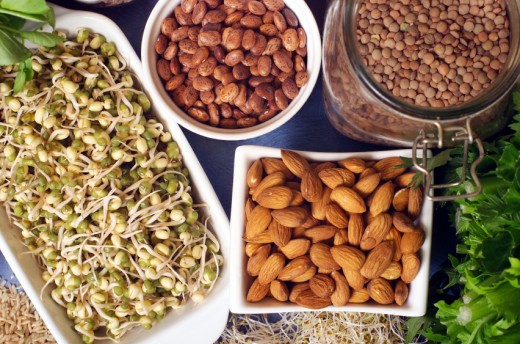
What can you do?
- Reduce your meat and dairy consumption by a few meals per week, you don't have to quit, but even reducing will make a huge impact on health and the life of everyone.
- Tell family and friends about your changes, encourage them to do the same
- Find alternative protein sources-legumes, rice, dark leafy greens, tofu, etc
- Make fruits and vegetables the bulk of your diet.
- Buy organic produce whenever possible
- Support your local growers by buying from them
- Feel better about yourself by valuing life when you eat less meat
- Join local groups and social media groups that encourage your lifestyle changes
© 2017 Rebecca

